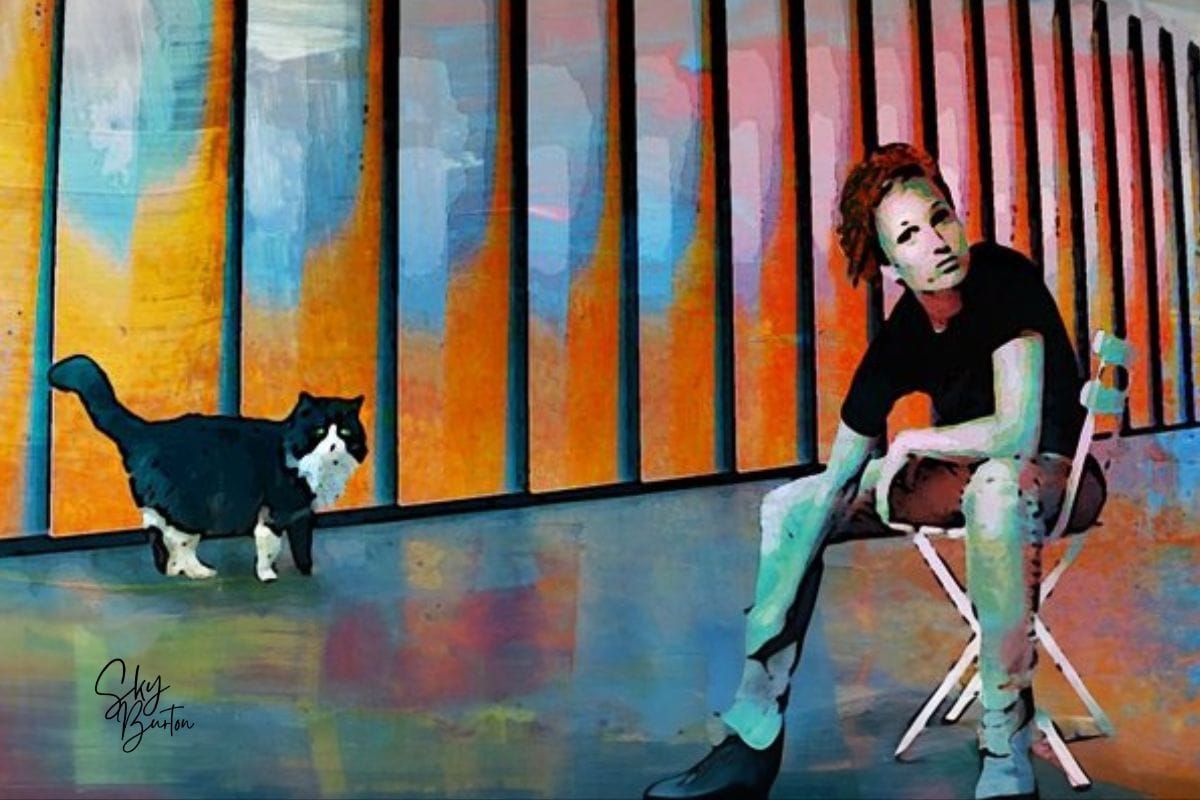The Weight of What Can’t Be Fixed
You can’t go back. You can’t walk up to your twenty-year-old self and change the story. You can’t untrain the public from the cravings you helped engineer. You can’t roll back the culture you once helped accelerate. You can attempt to rewrite a truer story but the original will always remain.

There are weights we carry that don’t change, no matter how much we reflect, repent, or rewrite. They aren’t the kind of burdens you can set down or solve. They are the weight of what can’t be fixed.
I didn’t understand this when I was young. In my twenties, working in Silicon Valley, I thought everything was fixable. Spin the story harder, bend the truth cleaner, dress the product brighter, and you could erase the cracks. Back then, I ran a PR agency, and my entire livelihood depended on the belief that anything broken could be reboxed, rebranded, and reborn.
It wasn’t just a job. It was an entire worldview. And it was wrong.
We used to joke about the ‘PR box.’ A client came in with a half-formed product or a half-baked vision. We’d build the box around it - a narrative so airtight, so convincing, that no one dared question what was inside. Most were lies, but no one cared.
It wasn’t just packaging; it was prophecy. We weren’t selling gadgets or code. We were selling the inevitability of a future only our client could deliver. Every pitch was world-changing. Every press release dripped with destiny or futurama. And when the media printed our stories, they became momentum, and that momentum built the kind of fortunes that reshape how people live and think.
The trick worked. The deception wasn’t only external, it worked on me, too. I bought the illusion I was selling. I thought we were redesigning the world. That’s how naïve I was.
In your twenties, naïveté feels like genius. You’re smart enough to manipulate the surface, but too young to see the rot underneath and the aftermath ahead. I thought I was sharp, unstoppable, untouchable. I was clever about messaging, fearless about deadlines, ruthless about the end game. What I wasn’t was wise.
I thought lies could be controlled, that hype was harmless if it moved us forward. I thought we could bend truth without breaking it. But deception has a half-life. And its fallout lingers longer than you can ever calculate.
Reality doesn’t strike like lightning. It seeps in slowly in fragments you can’t ignore. A client who disappears after they’ve cashed out. A friend who smiles while sharpening their knives behind your back. A betrayal that you didn’t earn but still cuts you to the bone. A product you hyped as a revolution that ends up as clutter in someone’s junk file.
And then, years later, the larger picture: the platforms we once worshipped as “community” becoming engines of division. The apps we sold as “productivity” becoming surveillance systems disguised as convenience. The shiny tools we pushed as “freedom” turning into chains people willingly clasp around their wrists.
We weren’t just selling stories. We were planting seeds of chaos. And we can’t unplant them. You can’t walk up to your twenty-year-old self and change the story. You can’t untrain the public from the cravings you helped engineer. You can’t roll back the culture you once helped accelerate. You can attempt to rewrite a truer story but the original will always remain.
It lives in the quiet hours, when you’re looking back and wondering how much of today’s chaos carries your fingerprints. It shows up when you see people drowning in the noise of the very systems you once created, even glorified. It whispers that you weren’t just a bystander. You were a participant, however small in the grand scheme of things.
Survival becomes psychological. It’s not about undoing. It’s about enduring. You endure betrayal not because you caused it but because people will always find something in you to hate, to envy, to destroy. You endure the chaos of a world built on illusions you once believed in. You endure the scars of choices you made when you didn’t know better — or worse, when you thought “better” didn’t matter.
Survival isn’t clean. It isn’t redemptive. It’s messy, weary, ongoing. It’s waking up every day with the knowledge that the past is unfixable and still deciding to move forward anyway. For me, survival looks like reflection, the kind that admits the lies, owns the complicity, and still insists on living.
The irony is that the Valley taught me how to spin illusions, but it also trained me to see through them. I can’t watch a new product launch or a new world-altering brand change, without recognizing the recycled lies in its DNA. I know the script because I wrote it. And that has become a core of me because when I see dishonesty I can't unsee it anymore. And today when all we see around us is some form of illusion that's been created for us it becomes more important than ever to reject it.
I don't want to be manipulated anymore, I am willing to see someone's scars, in fact I want to see those scars and see how you rose above it.
And when I look at the chaos we live in now, the surveillance, the trolls, the endless outrage. I see the echoes of those early PR boxes. We thought we were shaping destiny. In truth, we were engineering lies.
That chaos is our legacy. My legacy. Not mine alone, but still hard felt.
People imagine wisdom as revelation, some grand moment of clarity. It isn’t. It’s a slow burn. It’s decades of disillusionment, of betrayals, of watching illusions unravel thread by thread. It feels faster now and so the fear has become a daily routine.
It’s realizing that some people will betray you not because of what you did but because of what you reminded them of; their own failures, their own cowardice, their pettiness and jealousy. It’s realizing the grand plan you thought you were part of was never really about progress. It was about manipulating real people for profit. And you were complicit.
You don’t get to fix that. You only get to carry it.
So where does that leave me? Here, with the weight of what can’t be fixed. With reflection as my only resistance. With writing as my way of refusing to let the machine dictate the only story.
Because in the end, survival isn’t about erasing scars. It’s about living with them. It’s about eye rolls and silence in the face of manipulation. It’s about smirks at recycled lies. It’s about saying, I see this now. And I will not collapse under it.



